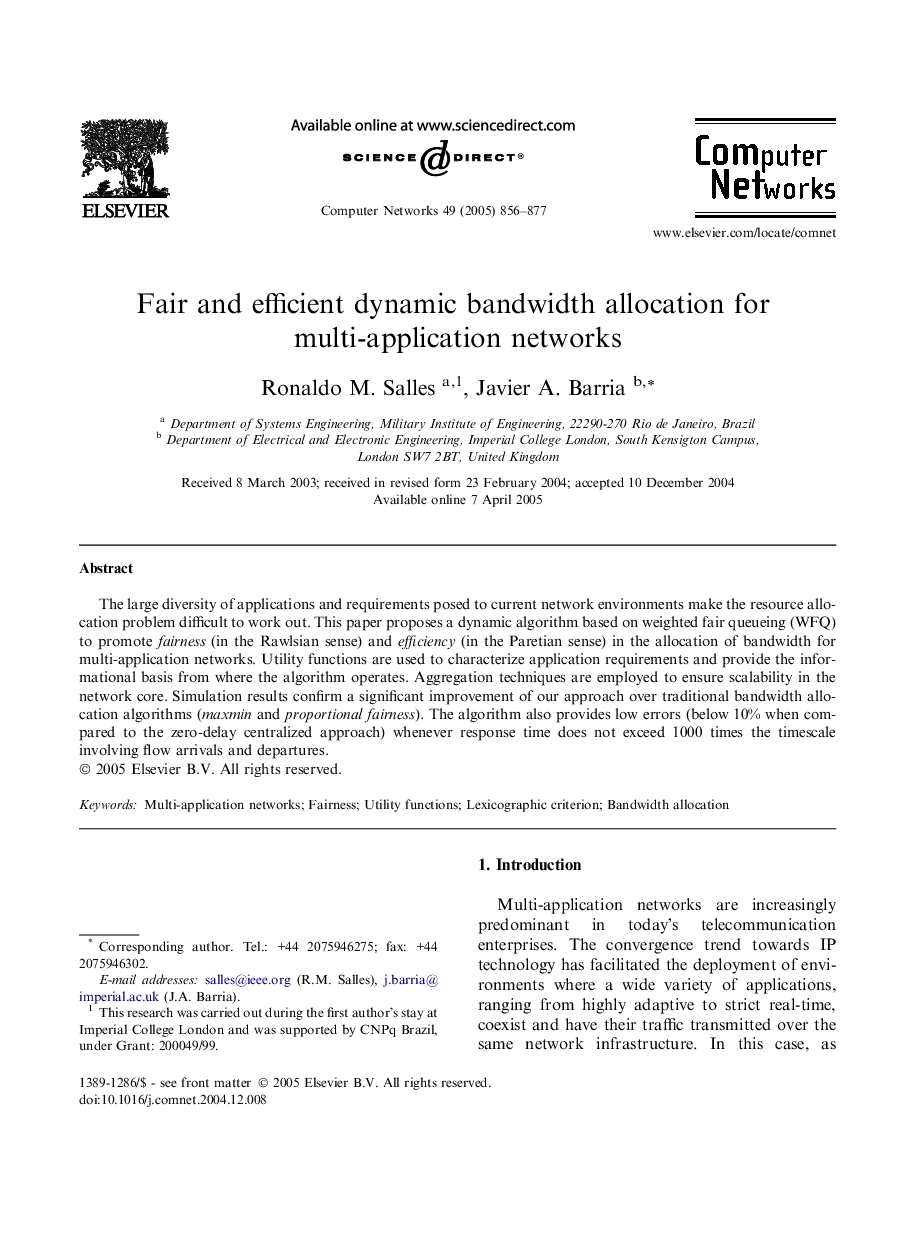| Article ID | Journal | Published Year | Pages | File Type |
|---|---|---|---|---|
| 10339565 | Computer Networks | 2005 | 22 Pages |
Abstract
The large diversity of applications and requirements posed to current network environments make the resource allocation problem difficult to work out. This paper proposes a dynamic algorithm based on weighted fair queueing (WFQ) to promote fairness (in the Rawlsian sense) and efficiency (in the Paretian sense) in the allocation of bandwidth for multi-application networks. Utility functions are used to characterize application requirements and provide the informational basis from where the algorithm operates. Aggregation techniques are employed to ensure scalability in the network core. Simulation results confirm a significant improvement of our approach over traditional bandwidth allocation algorithms (maxmin and proportional fairness). The algorithm also provides low errors (below 10% when compared to the zero-delay centralized approach) whenever response time does not exceed 1000 times the timescale involving flow arrivals and departures.
Related Topics
Physical Sciences and Engineering
Computer Science
Computer Networks and Communications
Authors
Ronaldo M. Salles, Javier A. Barria,
